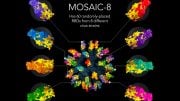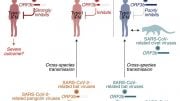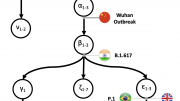
A study conducted by the University of Helsinki identified a 16% increase in type 1 diabetes among Finnish children during the first 18 months of the pandemic. However, this increase was not attributed to the coronavirus but rather altered environmental factors due to societal lockdowns and social isolation.
A recently concluded study has revealed that during the initial 18 months of the COVID-19 pandemic, a higher number of minors in Finland than usual were diagnosed with type 1 diabetes. The research findings indicate that the cause of this increase was not the virus itself, but rather changes in environmental factors.
The global rise in the occurrence of type 1 diabetes during the COVID-19 pandemic has been the subject of investigation by the PEDIA research group at the University of Helsinki. Their focus has been on exploring the phenomenon and identifying the causes among children in Finland.
“The mechanisms of the increase in the incidence of diabetes have been unclear, and there has been discussion on whether the increase results from a direct effect of SARS-CoV-2 infection or other simultaneously altered environmental factors,” says Professor Mikael Knip, who headed the study.
According to the study, the incidence of type 1 diabetes increased in children in Finland by 16% in the first 18 months of the pandemic. However, very few children or adolescents who developed type 1 diabetes had SARS-CoV-2 antibodies indicating past infection.
According to the researchers, the increase in the incidence of type 1 diabetes in the early stages of the pandemic is not likely to have been caused directly by coronavirus. Instead, it may be related to the society-wide lockdown during the pandemic period and the resulting social isolation.
“According to what is known as the biodiversity hypothesis, microbial exposure and infections in early childhood can boost the protection against autoimmune diseases. The reduction in contacts in connection with the societal lockdown significantly reduced acute infections in children, which may have increased the risk of developing diabetes,” Knip explains.
The results were published in the Lancet Diabetes & Endocrinology journal.
Is the increase in the incidence of pediatric diabetes temporary?
In the study, the incidence of type 1 diabetes in Finns under 15 years of age was compared to three preceding reference periods of the same duration. SARS-CoV-2 antibodies in children with type 1 diabetes were analyzed in collaboration with Professor Olli Vapalahti’s research group. Among the 785 children and adolescents diagnosed with type 1 diabetes in the pandemic period, infection-induced SARS-CoV-2 antibodies were found in only five individuals, i..e. less than 1%.
“The matter must be investigated further to find out what has happened to the incidence of type 1 diabetes since the lifting of the lockdown in summer 2021 and the subsequent increase in the number of coronavirus infections in the population,” Professor Vapalahti notes.
Registers are important sources of data
“The study was based on data from the Finnish Pediatric Diabetes Register,” says Mikael Knip, the Principal Investigator in charge of the register.
Since 2002, data and samples from the newly diagnosed children and their family members have been collected in this national register. The register, maintained by HUS Helsinki University Hospital, covers more than 90% of the patients who have developed diabetes.
“The register is globally unique including both data and biological samples and provides irreplaceable data for research,” Knip concludes.
Reference: “SARS-CoV-2 and type 1 diabetes in children in Finland: an observational study” by Prof Mikael Knip, MD, Anna Parviainen, MD, Maaret Turtinen, MD, Anna But, Ph.D., Taina Härkönen, Ph.D., Jussi Hepojoki, Ph.D., Tarja Sironen, Ph.D., Rommel Iheozor-Ejiofor, MSc, Hasan Uğurlu, MSc, Prof Kalle Saksela, MD, Johanna Lempainen, MD, Prof Jorma Ilonen, MD, Prof Olli Vapalahti, MD and the Finnish Pediatric Diabetes Register, April 2023, The Lancet Diabetes & Endocrinology.
DOI: 10.1016/S2213-8587(23)00041-4









Is the “deadly” virus being blamed (again) for an already-scientifically confirmedside-effect of the experimental gene therapy treatment “vaccines”.
Could be, according to this report from a generally highly-reliable source, which concludes, “. . . COVID-19 RNA-based vaccines might trigger the onset of type 1 diabetes, even in subjects without prior histories of diabetes.
https://pubmed.ncbi.nlm.nih.gov/35220662/